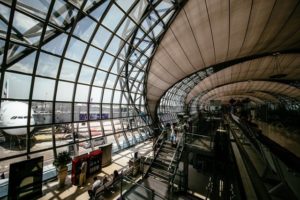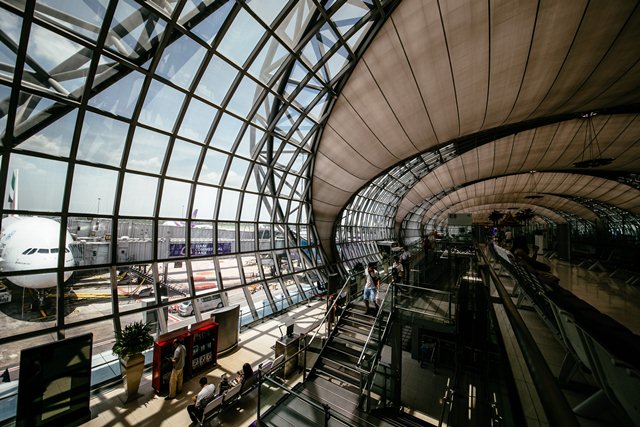 The head of the Association of Asia Pacific Airlines (AAPA) is calling on governments to work with international organizations and other stakeholders for a globally coordinated response to the novel coronavirus, noting that some measures against the outbreak seem to lack health justification and only serve to disrupt travel and trade.
The head of the Association of Asia Pacific Airlines (AAPA) is calling on governments to work with international organizations and other stakeholders for a globally coordinated response to the novel coronavirus, noting that some measures against the outbreak seem to lack health justification and only serve to disrupt travel and trade.
In a statement on February 7, Andrew Herdman, AAPA director general, assured that Asia-Pacific carriers are “well-prepared to handle health crises including those involving communicable diseases, and are taking every possible measure to minimise the risk of the novel coronavirus being spread more widely across frontiers.”
“The air transport industry is strictly following established guidelines developed by the International Civil Aviation Organisation (ICAO), in consultation with the World Health Organisation (WHO), the International Air Transport Association (IATA) and Airports Council International (ACI), covering the management of public health events,” Herdman said.
He pointed out that while it would be prudent for people who are ill or developing symptoms to delay international travel and to seek medical attention, “the WHO has to date not recommended any restriction of international travel or trade based on the current information.”
Nonetheless, a number of governments have introduced various measures including travel advisories, border entry restrictions and quarantine requirements, Herdman noted.
“Regrettably, some of these measures, whilst well-intentioned, seem to lack any proper public health justification, whilst causing significant and widespread disruption to travel and trade activities across the world. Arbitrary restrictions and blanket travel bans are inconsistent with the International Health Regulations, and result in unnecessary inconvenience and added uncertainty amongst members of the public,” he added.
He urged governments in Asia and elsewhere to “strengthen dialogue and work together with WHO, ICAO, and other stakeholders to develop a more comprehensive strategy and globally co-ordinated set of policy measures in response to the current outbreak.”
Herdman also commented that instead of “arbitrary travel bans,” passengers should be trusted to make informed decisions.
“Understandably, growing public concern about the outbreak has already had a very significant impact on demand for air travel across the region, forcing airlines to cut back or suspend services on affected routes,” he said.
“The risk of crews being subjected to arbitrary quarantine measures has resulted in further operational disruption, regardless of any proper risk assessment. Airlines are generally waiving cancellation fees or providing refunds to affected passengers on these routes. Rather than impose arbitrary travel bans, we believe that passengers can be trusted to make informed decisions, provided that there is open and transparent communication of accurate information.”
He further said: “At this critical juncture, improved co-operation and co-ordination by international organisations, national governments, health authorities and everybody involved in combating this global health emergency are of overriding importance. Asia Pacific airlines are fully committed to working closely with the relevant governments and national health authorities to support such efforts in the wider public interest.”
AAPA has released 2019 traffic data showing that passenger market growth has moderated, while air cargo volumes have fallen at their steepest level since the end of the global financial crisis in 2009. Herdman has also said the general industry outlook for 2020 is “clouded by uncertainty.”
Meanwhile, the IATA has said that “2019 was a difficult year for aviation and 2020 is off to a tragic and challenging beginning,” as it observed that 2019 marked the first year passenger demand fell below the long-term annual growth trend.
The global air freight industry is even more embattled, as IATA traffic data showed that 2019 was “the worst year for air cargo since the end of the Global Financial Crisis in 2009.”





